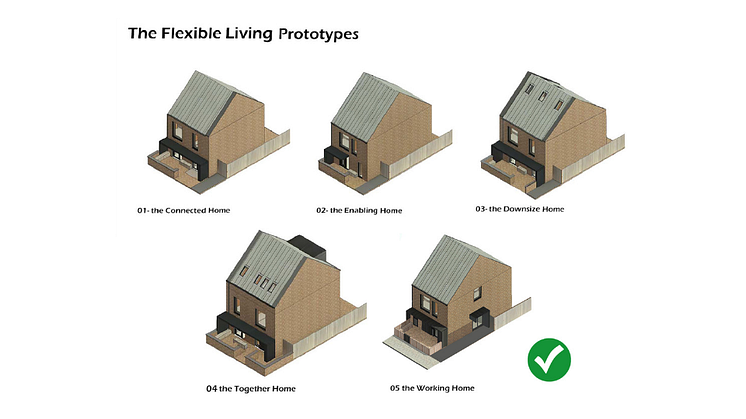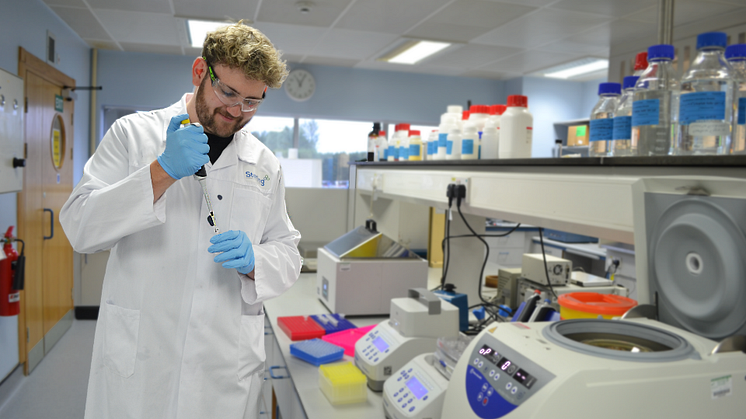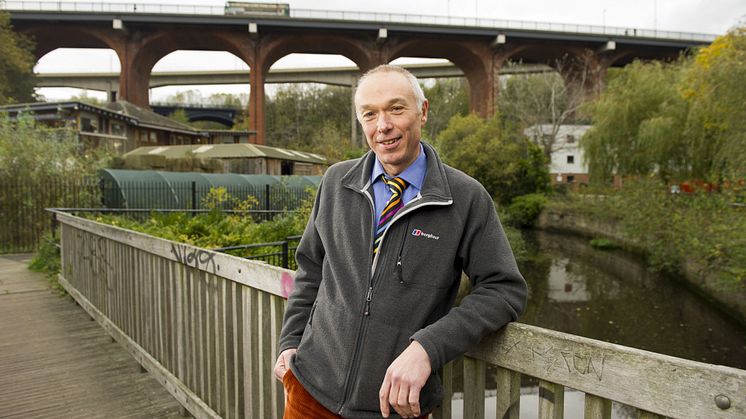
Press release -
Designing homes that are fit for the future
A team of Northumbria University academics has been awarded funding to design and develop a purpose-built home office within a prototype home, that will allow people to age in place and work effectively from home.
The research, led by Paul Jones, Professor of Architecture at Northumbria, is one of six Pathfinder Projects announced by the Design Age Institute to develop commercially viable products and services that will enable individuals and communities to maintain an active and joyful life at every age.
The housing industry in the UK does not respond to the challenges of growing old. It continues to build homes that are very difficult to adapt, compromising the ability of people to ‘age in place’ - a term used to describe a person living in the residence of their choice, for as long as they are able, as they age.
Northumbria University will be working with Design Age Institute to design and develop a purpose-built home office within a prototype home, to be built at South Seaham Garden Village in County Durham.
The project is supported by developer and housing association Karbon Homes as part of their commitment to ageing innovation and ageing-in-place strategies within the village, building on previous research they have worked on in collaboration with the University. This Pathfinder Project will lead to a blueprint of how older people can work efficiently and effectively from home and remain productive beyond retirement age.
The home office will consider layout, ergonomics, flexible and demountable furniture, lighting, and smart technology. It will be codesigned with members of the Royal College of Occupational Therapists, the Chartered Society of Physiotherapy, and older people, in collaboration with the National Innovation Centre for Ageing(NICA) and Voice, a community of patients, carers and members of the public contributing their lived experience to inform health research.
Professor Paul Jones explains the timeliness of the project in responding to the rapid changes in the employment market for older people: “Since the onset of the pandemic, working at home has become the norm. We know that older people (along with the young) were most likely to be made redundant as a result of Covid. The cost of living has risen sharply, and pensions are not keeping pace with this rise. Many older people have therefore decided to set up businesses at home.
“However, the domestic environment and the functionality of the home is not always conducive. Working in later life must be considered in a different way. Long hours in front of a monitor in the same position, for instance, is not suitable. Research suggests older workers need more breaks; they need to exercise and stretch; have access to a better and more tailored ergonomic environment; and opportunity to collaborate and meet others to develop ideas and avoid loneliness.”
Increasingly, an understanding of smart tech and online systems is also required to run a business, and how a dwelling can switch between a workplace and a home is another factor that the team will consider, which is especially important if space is at a premium.
“All of these issues form the basis of interesting design challenges that the research project aims to address,” adds Professor Jones. “Northumbria University is excited to work with the Design Age Institute and Karbon Homes, along with older people and health professionals to develop such a potentially impactful and important project.”
Five other successful projects will also be supported by The Design Age Institute, including cargo-carrying robots, an app to engage people with their hearing health through birdsong, an age-inclusive bank, data-driven diabetes management and a two-wheeled personal electronic vehicle.
Based at the Royal College of Art, The Design Age Institute was set up to provide design support for Pathfinder Projects; accelerating an innovative idea for healthy ageing from a prototype towards market. The objectives of these projects are to help people age healthier and happier in their home, workplace and neighbourhood by addressing issues of mobility, health, social connection, working life, finance, independence at home and ageism.
Colum Lowe, Director, Design Age Institute, said: “From health and mobility to housing and financial security, each of these innovative Pathfinder Projects focuses on a different fundamental part of day-to-day life. They all have the important common goal of developing desirable and commercially viable products and services for an ageing society. We're pleased to be working with a number of exceptional organisations and we look forward to launching more projects soon”.
From accommodating increased working from home and an ageing society, to reducing energy usage and withstanding the impact of climate change, our homes need to meet a growing list of changing demands. Northumbria University is helping to tackle some of these challenges and on Wednesday 9 March it will host an interactive webinar with leading industry partners and experts in this field. Find out more about the online event at www.northumbria.ac.uk/homesforthefuture.
Topics
Categories
Northumbria is a research-intensive modern university with a global reputation for academic excellence. Find out more about us at www.northumbria.ac.uk --- Please contact our Media and Communications team at media.communications@northumbria.ac.uk with any media enquiries or interview requests ---













